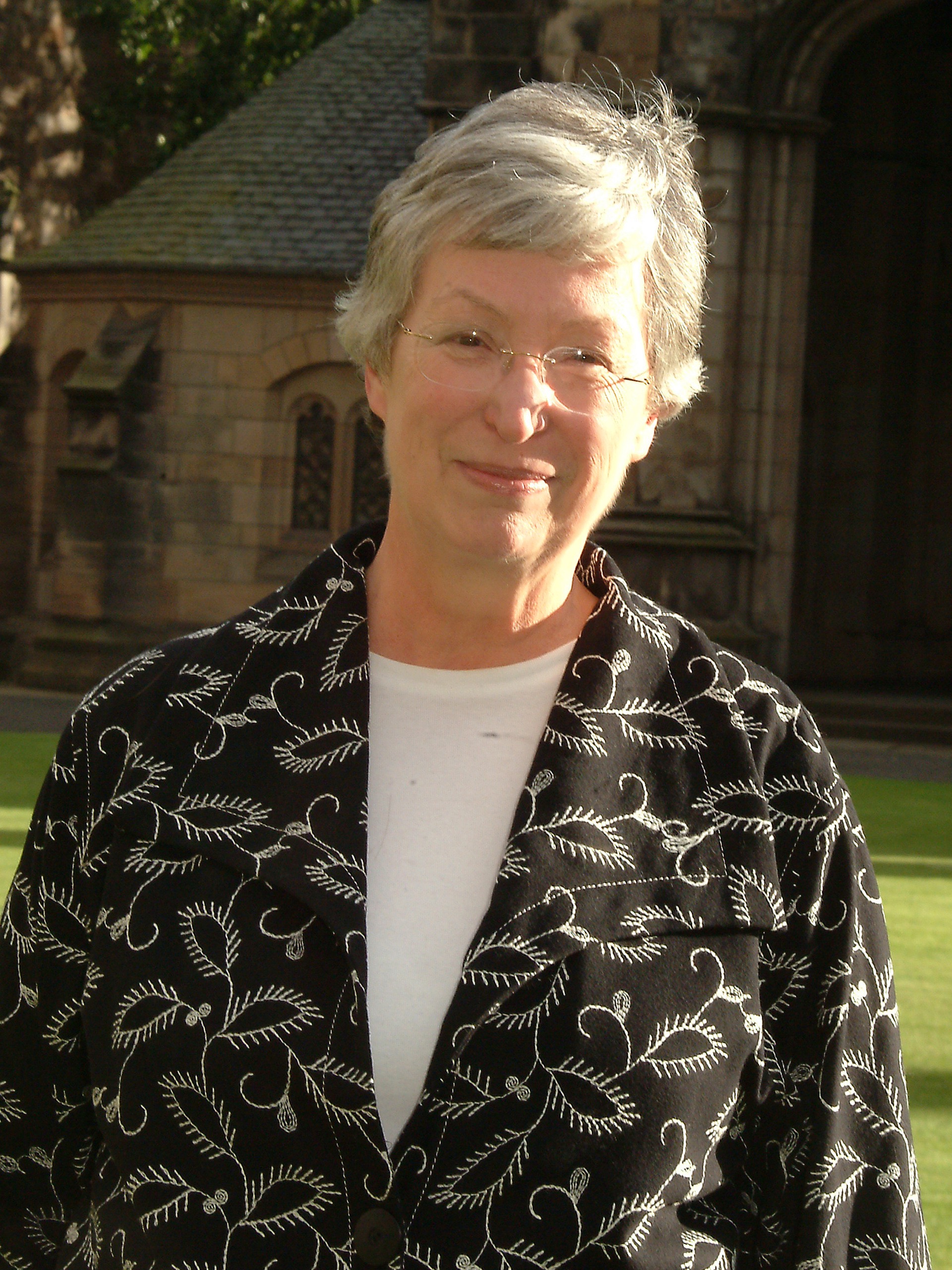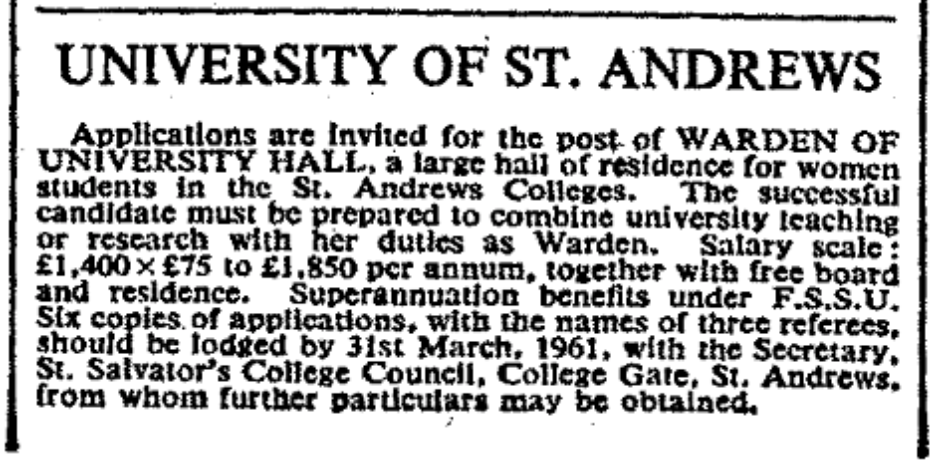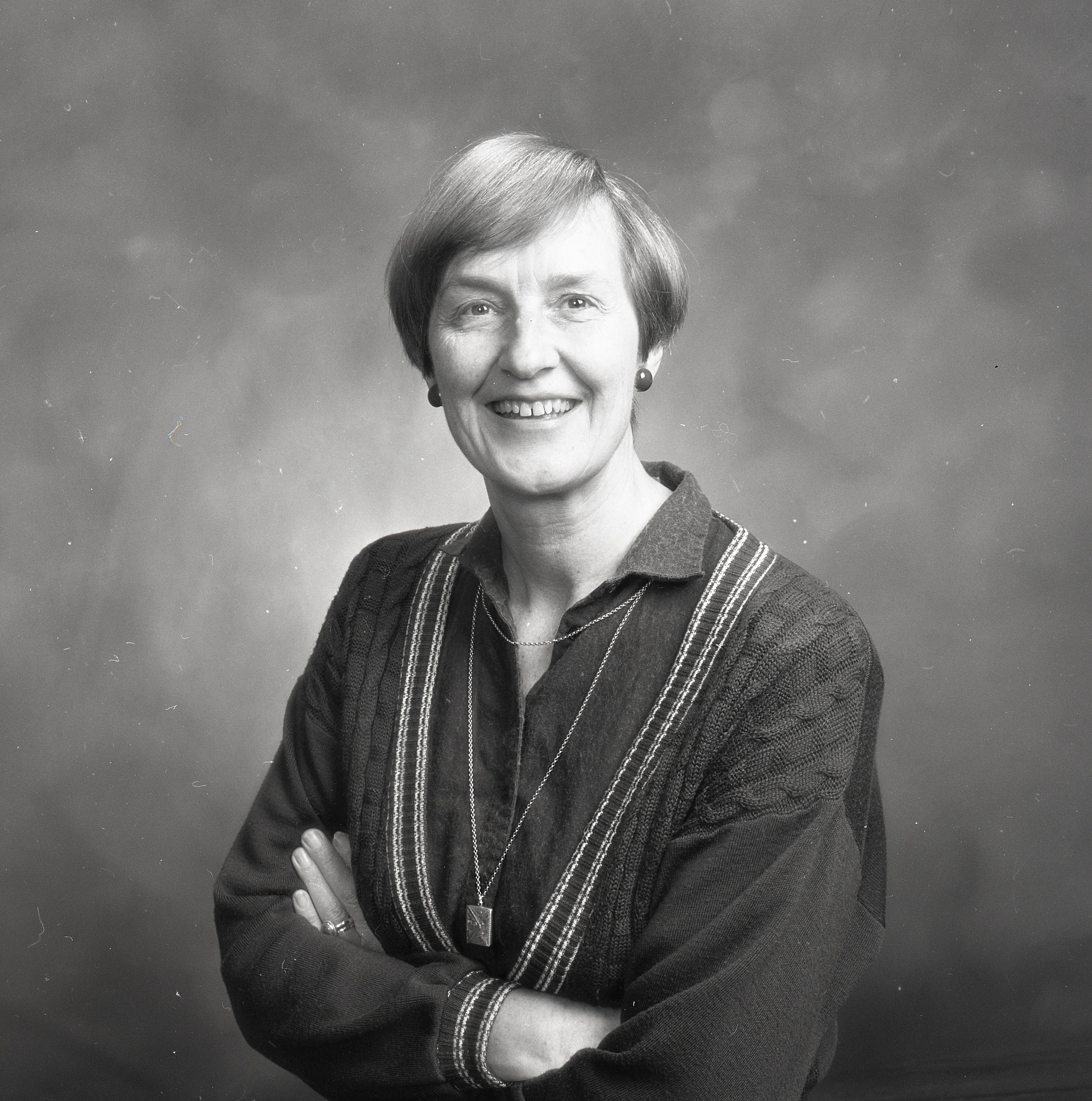Being an Academic
The posts in this section reflect on the experiences of those women who taught or researched history in the University. They encourage us to reflect on how the role of ‘the academic’ has changed over the last century. The role used to be almost entirely teaching-focused, but by the second half of the twentieth century, research and scholarship became more prominent, and a PhD and a publications list were coming to be expected. A structured ‘career path’ was also emerging, offering increasingly well-defined opportunitis for promotion, but this did not abolish the precarious and/or part-time roles that had existed since the start of the century.
-
Edith MacQueen and the Challenges of Academic Job-Hunting, 1930s-1960s
The career trajectory of Edith MacQueen – the first woman to obtain a PhD in History at the University of St. Andrews – poses a certain paradox: a woman of high academic standing, she possessed the right credentials and awards for a successful career in academia. She completed her PhD in 1927, and then a…
-
Ann Kettle

Ann Kettle was a lecturer in the Department of Mediaeval History at St Andrews for more than forty years. In addition to her teaching and research, she held various administrative posts in the university. Beyond St Andrews, Ann has made substantial contributions as a campaigner, reviewer, evaluator, and consultant on higher education matters. The following…
-
Wardens as Historians

Women’s colleges and residences provided important job opportunities for early women academics. Unlike Cambridge, Oxford or London, St Andrews did not establish women-only colleges, but it did have women-only residences. These were run by wardens. Not all of the early wardens had academic responsibilities in addition to their wardennial roles; but by the middle of…
-
From ‘Assistants’ to ‘Assistant Lecturers’
In the early twentieth century, there were few long-term jobs in academia: most departments had just one professor (or ‘chair’), and some had only a lecturer. For those hoping to embark on a career in a university, the entry point was often being appointed as ‘assistant’ to the professor (or lecturer). These roles were, however,…
-
PhDs in History: the first four women
The first PhD in History at St Andrews was awarded to T.F.G Dexter in 1922. Perhaps remarkably, it was only a few years later before two women followed suit: Edith MacQueen and Edith Thomson were awarded their PhDs in 1926 and 1928, respectively. But another quarter century would pass before Elizabeth Menzies and Edith Johnston…

